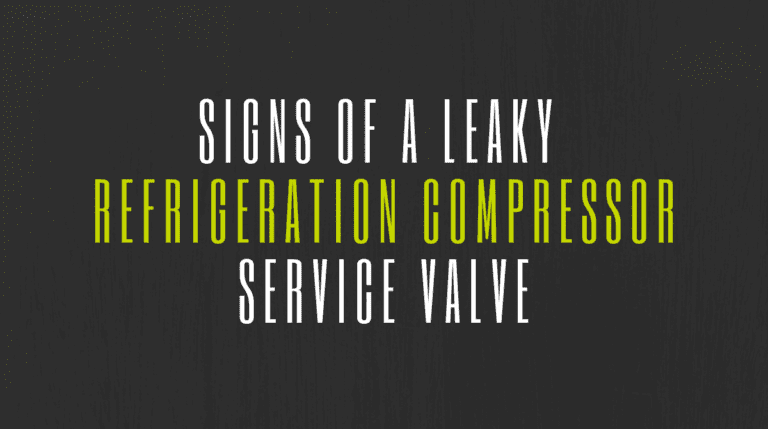Minor leaks can occur due to wear and tear on the components of the system. They may also be the result of another part of your cooling system malfunctioning in some way. Daily monitoring of your system is a good way to determine even the smallest fluctuations in both the temperatures and pressures associated with your system. Keeping a close eye on both will allow you to identify small leaks before they become major problems. As soon as the signs start to appear, a call to your HVAC technician should be your top priority.
An Increase in the Discharge Temperature
A leak in the compressor service valve can lead to shorter cycling of the refrigerant which increases the discharge temperature. With the cycles becoming shorter and shorter, the discharge temperatures will begin to increase since they are subjected to the heating cycle more frequently. An increase in the discharge temperature is one of the best indicators of a leak in the service valve. Monitoring these temps on a daily basis is a great way to uncover potential refrigerant leaks.
Higher Than Normal Condenser Subcooling
Any type of leak in the compressor service valve will cause most of the active refrigerant to remain in either the condenser or the receiver, or both. Over time, this will cause higher subcooling in the condenser and prevent the refrigerant from traveling throughout the system. While this may not seem out of the ordinary, over time, it can start to damage the system.
High Suction Pressure
A suction valve is used to remove excess superheat. If the valve is not seated correctly and the heat remains, the suction pressure will begin to rise. This can also cause refrigerant to leak from the compressor’s cylinder back into the suction line. As more and more of the refrigerant is displaced or drawn back into the suction lines of the system, the higher the suction pressure.
Higher Than Normal Superheats
With small refrigerant leaks, superheating may not become a problem. However, if the leak continues to increase, major problems can occur. Extreme superheating, or an excessive amount of vapor which goes far beyond its boiling point, is caused by insufficient refrigerant flow as it travels through the system. If the flow of the refrigerant is not sufficient when it gets to the thermostatic expansion valve, it can cause extreme superheating.
Lower Than Normal Compressor Head Pressures
Short cycling will dramatically reduce the flow rate of the refrigerant as it moves to the condenser. This lowers the heat load placed on the condenser and will dramatically reduce both the temperatures and the pressure of the condensing head. This in turns reduces the efficiency of your system making it work harder than it needs to.
A leak in the compressor service valve is often detected during an inspection of the system and can be repaired rather quickly. These tips are a great way to identify the problem if it happens to occur between regular inspections. If a leak is detected or if you suspect one may be compromising your system, call a professional HVAC technician and have them take a look at your system. The sooner it’s fixed, the quicker your system will be up and running at maximum efficiency.
If the diagnosis determines that a replacement refrigeration compressor may be necessary, Compressors Unlimited has a wide selection of remanufactured compressors that are not only cost-effective, but superior quality with a warranty included.












